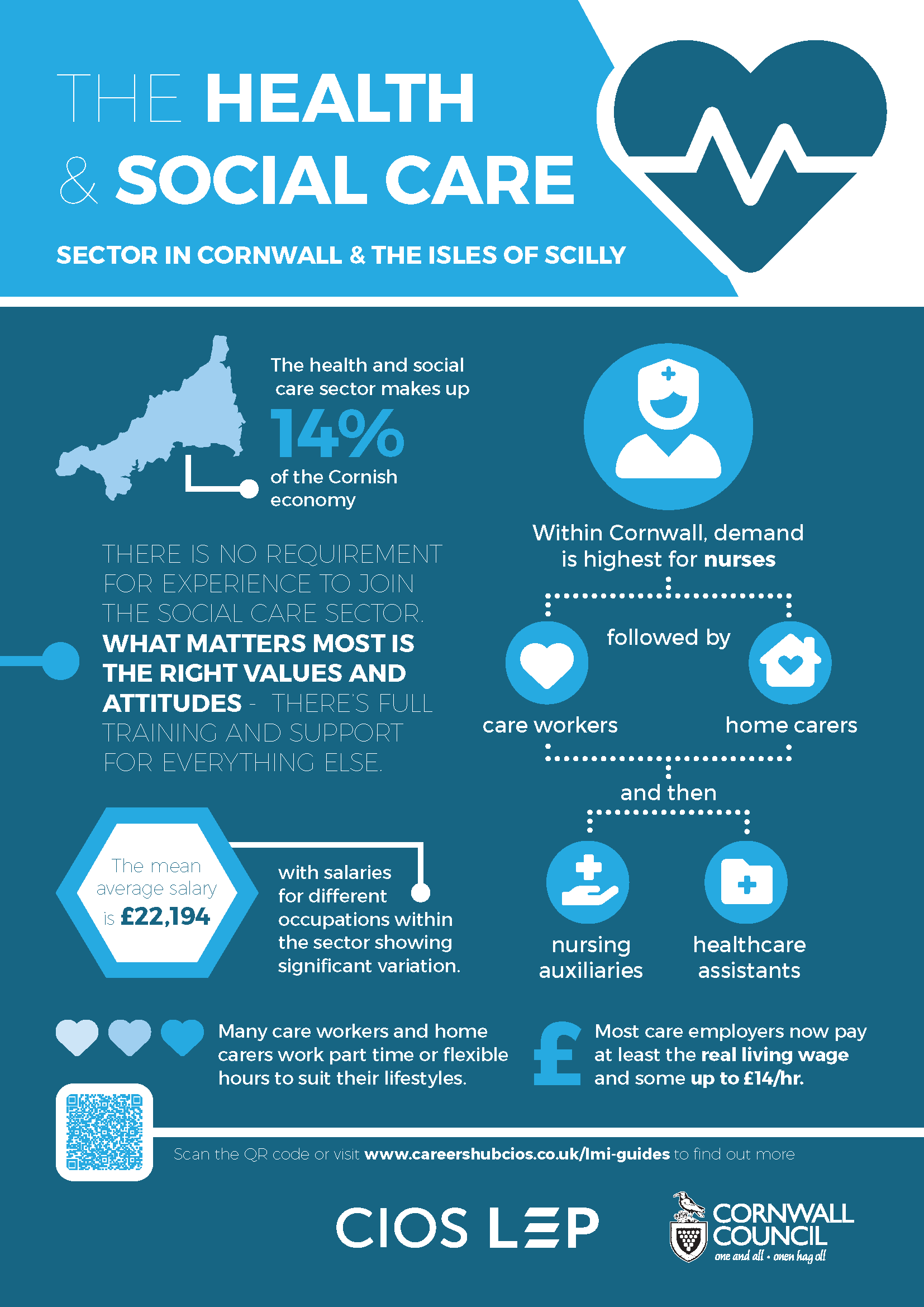More Support organisations
Sector Outlook
Within the sector, the largest proportion of staff work as care workers or home carers, followed by administrative roles and then nurses. Within Cornwall, the demand is highest for nurses, followed by care workers and home carers and then nursing auxiliaries and assistants. An ongoing concern for the sector is that the aging population in the UK will require a larger adult social care workforce, at a time when employers are struggling to recruit, especially younger employees.
Technology and innovation are already offering different approaches to the provision of health and care, helping to offset the growing demand for services. There has been a huge rise in healthcare services globally being delivered remotely, termed ‘e-health’. This was accelerated during the pandemic but is part of a wider trend. While there are challenges still to overcome with this approach, there are efficiencies and environmental benefits to be gained and the growth of remote patient care will continue.
Further development in the use of big data for prevention, diagnosis and precision medicine will also transform clinical and non-clinical care. Collection and reporting of data will happen in many front-line roles within health and social care. Digital skills will be required in many occupations, and increasingly training at all levels is being delivered or supported by virtual environments.
Health and Social Care




